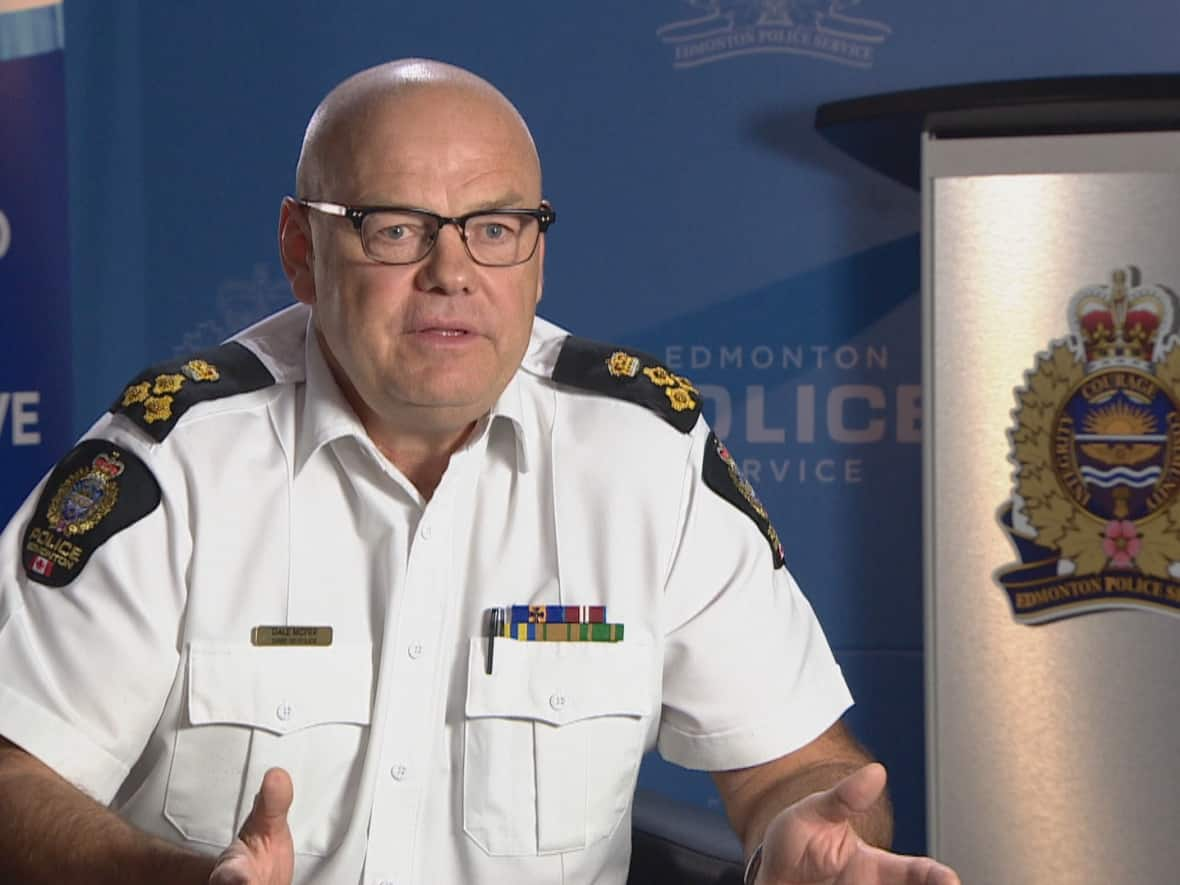Edmonton police expanding social services program after successful first year

Edmonton police plan to expand a program that is trying to reduce social disorder and crime by referring marginalized people to a network of social services.
Since January 2021, the Human-Centred Engagement & Liaison Partnership (HELP) has been trying to stop cycles of crime by addressing its root causes, like poverty, addiction, homelessness and mental illness.
Working out of a building in the Central McDougall neighbourhood, police officers and staff from multiple social agencies collaborate to help program participants find housing, psychological treatment, medication and ID cards.
The $3.3-million program also includes a "Crown diversion" element, making it easier for people to access services by resolving their outstanding criminal matters as quickly as possible.
During a presentation to the Edmonton Police Commission on Thursday afternoon, EPS members said nearly 900 people were referred to services during the program's first year.
Strategic business intelligence analyst Katherine Hancock said that before becoming involved in the program, those individuals generated more than 4,000 of what police call "disorder indicator violations," including criminal infractions, non-criminal events and petty crimes frequently associated with people experiencing homelessness.
After joining the HELP program, participants' average number of monthly police contacts decreased by about a third and the decreases were more dramatic for people who had very high police involvement before the program.
"The numbers show it's working," said Kris Knutson, director of programs at The Mustard Seed.
Boyle Street Community Services, the George Spady Society, the Bent Arrow Traditional Healing Society, the Boyle McCauley Health Centre and the Native Counselling Services of Alberta are also partners in the program.
Knutson, who said he has been working with vulnerable and marginalized people in Edmonton's inner-city for more than 20 years, said the program is one of the first in the city to bring many groups together under one roof.
At the beginning of the presentation, Supt. Kellie Morgan, who oversees the HELP program, shared a video about a participant named Rodney.
The program connected Rodney, who used to be homeless and was the cause of many disorder-related police calls, with psychiatrists, pharmacists and housing.
"I haven't always been the best person but try, try hard and you never know what you can overcome," Rodney said during the video.
Sgt. Michael Kembel said police officers' relationships with community members in the program have helped resolve dangerous police calls.
In one case, someone precariously perched on the High Level Bridge and armed with a knife dropped his weapon and moved to a safer location once the HELP team got involved.
Enyinnah Okere, chief operating officer of EPS's community safety and wellbeing division, said nearly a dozen other police agencies have approached EPS about replicating the program.
Though EPS considers HELP a success, the program has not been without challenges.
Morgan said sharing information between agencies has been difficult and Okere said he is worried about burnout among the team's small staff.
Police Chief Dale McFee praised the program during the meeting and said it would be part of an increased police presence downtown.
EPS also plans to deploy two HELP staff members to work in the Whyte Avenue area starting next month.


